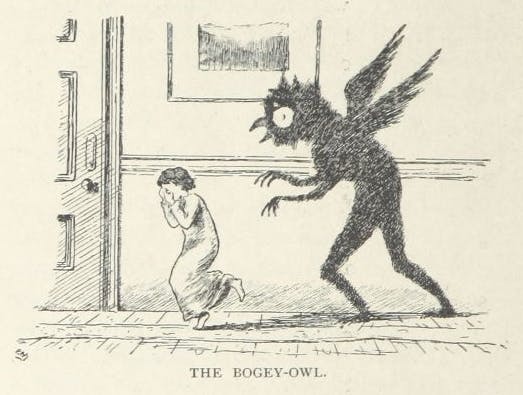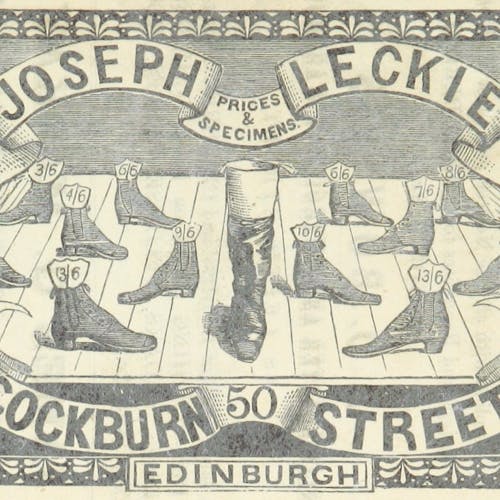Let’s Talk About Our Stinkin’ Money Thinkin’
- PotpourriWe’ve had a few very tactical newsletters recently, so here’s a palate refresher for you: this month, I want to talk about stinkin’ money thinkin’.

I’m referring to those long-held, unexamined, toxic beliefs about money which no longer serve us and need to be retired from our thinking.
To eliminate these beliefs from our thinking, we have to get clear on what they are, right? To get started on that, see my post about Money Scripts®. In that post, I directed you to a very short quiz from Your Mental Wealth Advisors. If you haven’t done it already, please head over there now and grab yourself some insight into what you believe about money. You might even have some extra fun by thinking about where you got all these stories and how they have affected you over time.
But why should we care about our Money Scripts®? The team at Your Mental Wealth Advisors conducted research on these beliefs and found they are related to financial health measurements like income, debt, and net worth, and also behaviors like spending habits and how we allocate money. Apart from these “hard” financial measures, I would assert that our stinkin’ stories about money can negatively impact our relationships and how we feel.
So let’s move on to the money stories themselves. The good people at Your Mental Wealth Advisors analyzed all these stories and grouped them into four core money beliefs: Money Status, Money Worship, Money Vigilance, and Money Avoidance. Here’s a quick rundown on the four core beliefs and some of the individual stories that might fall into each of them:
1. Money Status: These beliefs link self-worth with money. People who have higher scores in this area sometimes focus on external displays of wealth and may overspend. They may also believe that if they behave well, they will be rewarded with money. Money Status beliefs sound like this:
a. I work so hard, I deserve a new kitchen
b. I’m a good person who does good things. So when am I going to be rich?
c. If I haven’t worked my fingers to the bone, I don’t deserve money
d. If I’m not productive, I’m worthless/lazy/bad
e. She’s absolutely rolling in it; look at that car, that house, those clothes! I wish I could live like that
f. If I live in the right house in the right neighborhood, people will be impressed
g. I may be a bit short on cash, but this Chanel jacket would look so good on me
h. Chuck is a pillar of the community; haven’t you seen his yacht?
i. We are living in a material world, and I am a material girl
2. Money Worship: This core belief says money buys happiness. Folks who score higher on Money Worship see money as a scarce resource and believe when they have more money, they will be happy. When they do get more money and buy more things, they may feel a sense of disappointment or emptiness instead of the happiness they were seeking. Money Worship beliefs sound like this:
a. It’s really hard to get a job right now
b. Let me just grab these rolls from the next table at this restaurant for later…and they’re probably not using these salt and pepper shakers, either. Oh, and the creamer
c. Money is a zero-sum game. If someone else gets this money I’m not getting it, and vice versa. If someone else is winning, I’m losing
d. It’s hard to get a raise; my company is so cheap!
e. Money is a lake, not a river (a very common belief among women)
f. I could never have enough money…just give me Bill Gates’ billions and let me try to spend them
g. Once I get that next promotion, I’ll be satisfied and stop spending all my time at work
h. Once I buy that watch/car/purse/other thing, I’ll be happy
i. Everyone should buy a home…including me! (If you’d like to challenge this thinking further, see my post about buying a home)
j. The best things in life are free, but you can give them to the birds and bees. I want money!
k. Oh, great. Someone just started another bubble tea business around the corner…my bubble tea business is doomed!
3. Money Vigilance: People who have higher Vigilance scores are very aware of where they stand financially and can even lean toward hyper-attentiveness. Their financial numbers usually look good, but they may feel more anxiety and worry about money than other people. I even wrote a post for folks who feel this way. Money Vigilance beliefs sound like this:
a. If I buy that I’ll just feel guilty, so forget it
b. I can’t go to the movies with you because I only have $3M in retirement savings
c. $5 for a pizza to feed all six of us? No way; that’s highway robbery! I’d rather stay home and eat ramen
d. I can’t take that vacation because I feel bad about spending the money
e. Sure, $150k a year may sound like a comfortable salary in South Dakota, but why pay for haircuts when Grandma gave me that slick Suck Kut for Christmas?
f. Am I financially OK? No, am I REALLY OK? Am I sure? I’m not so sure…I might not be OK (lies awake the rest of the night)
g. I’m going to end up destitute and homeless
h. I haven’t checked on my investment portfolio in three hours; I’d better get back online!
4. Money Avoidance: The underlying belief here is that money is bad. Money Avoiders may think people who have a lot of money are evil, and money corrupts people. These folks may ignore their financial status or use money to financially enable other people. Money Avoidance beliefs sound like this:
a. People who spend their money on (insert idea of frivolous spending here) are jerks
b. If I spend my money on (insert idea of frivolous spending here), people will judge me…and they will be right
c. Oh, he’s a bajillionaire. He must be a total a**hole
d. Oh sure, she won the lottery when she married Barbara, but she’s a miserable person
e. She made a lot of money doing (insert idea of frivolous occupation here). What a sellout!
f. How dare he make all that money by showing his pecs on camera. You know he’s as dumb as a box of rocks, right?
g. How am I supposed to talk to my partner about money? I just broke out in hives thinking about it
h. Money is the root of all evil
I truly don’t intend to mock anyone here. I’m not judging anyone for their beliefs about money, and my only goal in writing down these exaggerated examples is to help you recognize and evaluate your OWN beliefs in a way that injects a little humor and lightness into the activity. Sometimes people have these beliefs because they’re in real financial difficulty or even because they’re currently true, and I acknowledge that. In these cases, your beliefs may be serving you, and that’s great. I’m just asking you to be honest with yourself about what you believe and then decide whether those beliefs are truly serving you now.
And that’s the next step. Once you’ve identified your own beliefs, line them up and start thinking about whether they are working for you now or if you need to let them go. They may have served you well in the past, and they may serve you again sometime in the future, but are they serving you now? And don’t stop there; keep challenging those beliefs. Just because our culture has accepted a story or your parents told you something doesn’t mean it works for you.
If you DO want to start changing any of these beliefs, you can find some tips here from Your Mental Wealth Advisors. By changing the way you think about money and some of the practices you have around it, you can make that stinkin’ thinkin’ fresh and new…and see a whole new world of possibilities for yourself. Yeah, I went big there!
I wish you success in continuing to grow and change how you think about money.
And finally, my thanks to Stuart Smalley for inspiring the title of this post.

